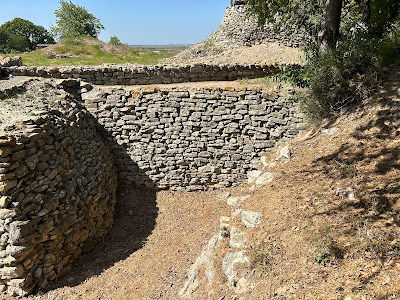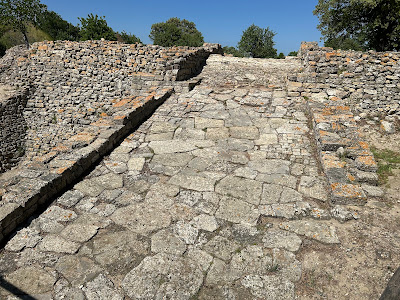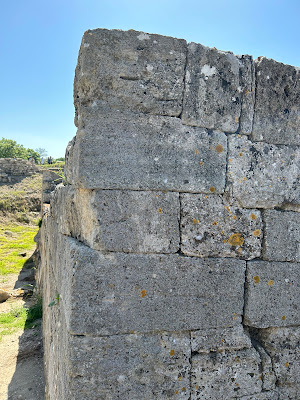I-Bun the Mighty passed away Monday night.
When I adopted him in 2015, he was the rabbit I did not even think that I needed. We had three rabbits already, but my friend The Shelter Director had already started on me the preceding August. She kept encouraging me to take out the cage and hold him. "How is your rabbit doing?" she would tease me during the intervening months.
That December he came home. Only a few weeks later our first rabbit Bella passed, and he had a place to stay.
Rabbits are said to have the intelligence of cats, and their personalities are just as varied and memorable as any larger animals. I-Bun was no exception.
To I-Bun, the world was about I-Bun. He refused to paired with any rabbit, things usually ending in rabbit domination rituals, and so he lived in his own cage. He would happily hop to the door to greet you, and even more happily hop out to take a stroll around the room.
What I-Bun was most about, though, was attention.
When we had the large purple chair in the Living Room I used for reading, he would perch himself one one arm, where he would firmly begin demanding attention with head butts and even light bites. Once the attention started - his favorite spot was the hollow just below the ear and behind the eye - he would sink down, his eye almost going completely shut and looking for all the world like he had gone asleep. And he could stay that way for long periods of time - stop the process, and one would get the baleful eye demanding that the attention restart itself.
Sometimes, he would even deign to give some attention back.
The Plague and Work From Home/Layoffs (2020-2023, 2023-2024) were a great time for him. I could set up the X-Pen wire cage in the entry hall and rotate the rabbits in and out so everyone got some out-of-the-cage time. He relished these times, pushing the walls of the cage towards the carpet and trying to find a way to get out (which he did on more than one occasion).
The last two months of having him and Joy here were, in a real way, mental life savers. Not just to have someone there when I got home, but the pure joy he exhibited when he got his 30 minute "out time" that we always did even up to the Saturday before he passed. His routine when the door was open - hopping out, a very long stretch and yawn, then bounding away to explore the room - made the fact of being alone in a large city a little more enjoyable.
Rabbits can pass quickly, a legacy of being a prey animal where weakness is interpreted as becoming dinner. He was fine Sunday morning, did not eat Sunday night (although this has happened with both rabbits before), and by Monday was definitely looking worse. My fear was gut stasis, which can be caused by any number of actors - diet, weather change, just because - and I administered Gas-X and Critical Care, which was either not enough, too late, or simply not the issue.
But, to be fair, he was also probably at least 10 years old. At an average life span of 9-12 years, he had lived a good life.
I stayed with him until the end Monday night, sitting on the couch with him in my arms, then lying down with him. When I rose to feed him at 2300, it was clear it was close. His breaths got shorter and shallower and shallower, and then - quietly - they stopped altogether.
One of the greatest books about animals, to my mind, is Watership Down by Richard Adams - both because it is about rabbits (no surprise of my opinion there) and the fact that he writes of rabbits as I would think rabbits probably see themselves. The very last paragraphs have always touched me:
"One chilly, blustery morning in March, I cannot tell how exactly how many springs later, Hazel was dozing and waking in his burrow. He had spent a good deal of time there lately, for he felt the cold and could not seem to smell or run so well as in days gone by. He had been dreaming in an awkward way - something about rain and elder bloom - when he woke to realized there was a rabbit lying quietly beside him - no doubt some young buck who had come to ask his advice. The sentry in the run outside should not have really let him in without asking first. Never mind, thought Hazel. He raised his head and said "Do you want to talk to me"?
"Yes, that is exactly what I've come for," replied the other. "You know me, don't you?"
"Yes, of course," said Hazel, hoping he would be able to remember his name in a moment. Then he saw that in the darkness of the burrow the stranger's ears were shining with a very faint silver light. "Yes, my lord," he said. "Yes, I know you."
"You've been feeling tired", said the stranger. "but I can do something about that. I've come to ask you to join my Owsla. We shall be glad to have you and you'll enjoy it. If you're ready, we might go along now."
They went out past the young sentry, who paid the visitor no attention. The sun was shining and in spite of the cold there were a few bucks and does at silflay, keeping out of the cold wind as the nibble the shoots of spring grass. It seemed to Hazel that he would not be needing his body anymore, so he left it lying at the edge of the ditch, but stopped for a moment to watch his rabbits and try to get used to the extraordinary feeling that strength and speed were flowing inexhaustibly out of him into their sleek young bodies and healthy sense.
"You needn't worry about them," said his companion. "They'll be all right - and thousands like them. If you'll come along, I'll show you what I mean."
He reached the top of the bank in a single, powerful leap. Hazel followed; and together they slipped away, running easily down through the wood, where the first primroses were starting to bloom."
Somewhere, in the coming blue-green of the evening where the physical and spiritual world meet, the great Owsla now runs its patrol with a one-eyed rabbit charging forward with joy.
God speed, I-Bun.




















































